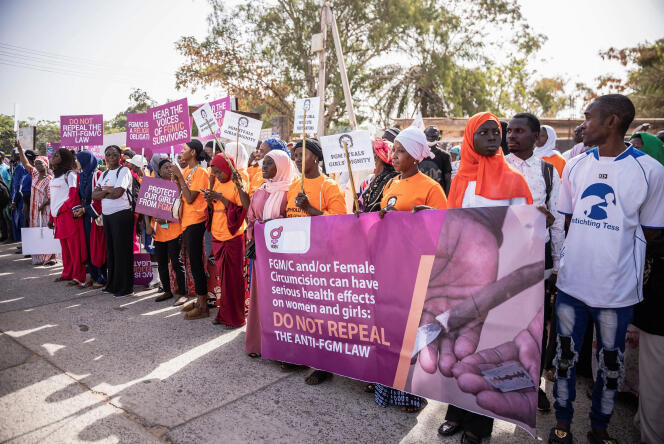Gambian Parliament Debates Bill to Reverse Ban on Female Genital Mutilation

- Gambia's lawmakers are debating on whether to repeal the anti-FGM bill
- The practice has been outlawed in the country since 2015
- There has been the need to revisit following continous practice
Gambian lawmakers, on Monday, deliberated over a proposal to revoke a ban on female genital mutilation (FGM), a practice that has been outlawed in the country since 2015. Despite efforts by activists to eradicate FGM, its prevalence has persisted, prompting renewed debate within the small West African nation.
The bill, introduced by lawmaker Almameh Gibba, challenges the existing legislation by arguing that the ban infringes upon citizens’ rights to practice their cultural and religious traditions. Gambia, where Islam is the predominant religion, faces a complex intersection of cultural norms and human rights concerns regarding FGM.
If approved, Gambia would become the first country to overturn a ban on FGM, setting a controversial precedent in the global fight against this harmful practice. The proposal has sparked intense debate among lawmakers, with divergent opinions reflecting the complexities surrounding FGM and its cultural significance.
Following deliberations, the bill was referred to a parliamentary committee for further review by a majority vote of 42 to 4. This procedural step is expected to prolong the legislative process, potentially lasting for at least three months before a final decision is reached.
The resurgence of FGM in Gambia comes amid a global increase in cases, with the United Nations Children’s Fund reporting a rise in the number of affected women and girls worldwide. Advocacy groups stress the importance of maintaining legal prohibitions on FGM to safeguard women’s rights and prevent its harmful consequences.
While proponents of the bill argue for cultural preservation and religious freedom, opponents warn of the detrimental impact on women’s health and rights. Anti-FGM campaigners, such as Jaha Dukureh, express concern over the potential reversal of progress in combating FGM in Gambia and the wider region.
International observers, including human rights organizations like Amnesty International, closely monitor the legislative developments in Gambia, viewing the outcome as a pivotal moment for women’s rights in the country and beyond.




